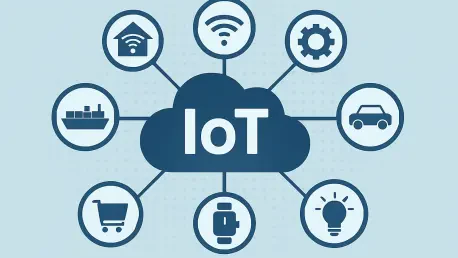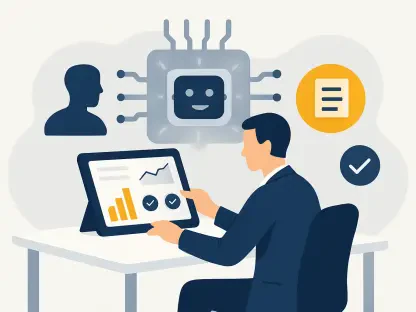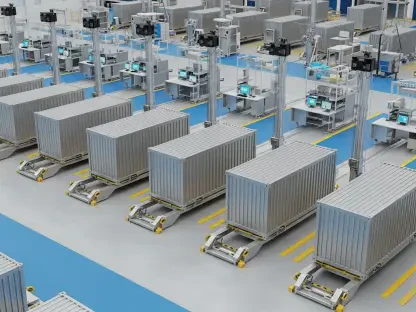The Internet of Things (IoT) is an important aspect of today’s digital world, especially since it connects multiple aspects of people’s lives. It offers advanced solutions to improve how businesses connect to and engage with target customers. B2B owners use this technology to transform the industry with 51% of marketing professionals suggesting that it has the potential to positively change the competitive landscape. This article explores the unparalleled impact of IoT on B2B marketing, sales, and engagement.
Integrate IoT in Sales to Increase Efficiency and Equip Your Team
Understand Customer Preferences
It is important for sales professionals to understand the target audience to pitch to them successfully. IoT data facilitates this understanding by making valuable information about customer needs available to sales representatives. By analyzing this data, the team can account for complex demands and engage more effectively with buyers. Using IoT data, sales professionals can tailor their approach to cater to customer needs. Acknowledging customer preferences in sales pitches can lead to higher conversion rates.
Improve Product Insights
IoT ensures that sales representatives have relevant data to improve their knowledge about how the products function. The availability of this information helps teams to analyze and facilitate timely, relevant sales pitches that support customers. With detailed knowledge of how products work, sales teams can advise customers more effectively and build trust.
Accelerate Sales Cycle Times
B2B companies use the IoT to improve transportation maintenance, which increases operational efficiency. For instance, sensor technologies enable vehicle tracking, route optimization, and efficient delivery in telematics. Using IoT in fleet management allows real-time route adjustments based on traffic updates, which helps service vehicles arrive on time for deliveries. Timely services encourage future purchases and increase customer satisfaction, which optimizes sales cycle times.
Smart technologies are also useful to streamline inventory processes. Some innovators have automated shelves that communicate order needs directly to manufacturers to ensure products are readily available to meet customer demand. These smart shelves also provide essential information about shipping sizes, dates, and locations, which businesses can share with shipping partners to accelerate the sales process.
Use IoT to Enhance B2B Marketing Strategies
Real-Time Tracking
IoT sensors in smart devices can track how the ideal market interacts with certain offerings, helping sellers make informed decisions about marketing their products. The buyer’s journey is important for effective marketing, so it is beneficial for businesses to use technologies that allow real-time tracking of purchase behaviors. Smart sensors and connected devices provide regular updates about where the customer is in the buying process.
Real-time tracking makes it easier to notice irregularities in buying behavior and facilitates timely interventions. If there is a problem, IoT technology can send out automated messages that offer buyer support. The same automated systems can be used to promote discounts and attract more potential customers to the business. Ultimately, smart technologies in marketing ensure that efforts are always relevant and timely, allowing marketers to use business resources efficiently.
IoT for Industry Research
In a rapidly changing B2B landscape, it is important for marketers to stay informed about industry trends and demands. By understanding these trends, marketers can adapt strategies that lead to targeted campaigns, higher buyer satisfaction, and better business outcomes.
IoT-driven research offers access to real-time data that helps professionals anticipate market changes and identify emerging opportunities early. These predictive measures facilitate strategic decision-making, enabling effective supply chains, product optimization, and operational efficiency. Smart devices collect information from different parts of the world, offering global B2B insights. Using these insights, businesses can adjust their strategies to respond to ongoing trends and competitor movements.
Clear Messaging and Tailored Targeting
Marketers use IoT technology to gather real-time data that improves B2B marketing strategies and targeting. Personalization is an effective marketing tactic, and 95% of senior marketers in 2025 report that it leads to success. The vast amounts of data from IoT allow them to create tailored marketing approaches that target specific customers. This enables businesses to send adverts with clear messaging and product specifications that customers can connect with. Potential buyers are more likely to engage with relevant marketing that addresses their distinct needs.
Tailor CRM for Effective Engagement
Custom Marketing
The use of IoT allows businesses to customize their CRM approaches for more effective engagement. IoT data informs businesses on customer behaviors and preferences, which allows tailored campaigns that enhance CRM. Customers actually expect advertising to address their needs and 76% are disappointed when brands do not tailor messages. Additionally, companies that prioritize custom marketing strengthen their relationship with customers and generate 40% higher revenue than those who neglect it. With smart tracking, marketers get information about how customers interact with products and the multiple features that work to facilitate this customization.
Next-Generation CRM
The IoT makes detailed information about how customers engage with a product, allowing for buyer-centric interactions. For example, next-generation CRM, which are intelligent systems, enable real time tracking that provides systematic alerts about product delays or malfunctions. This proactive approach improves customer satisfaction, enhances communication, and builds trust.
Ticketing systems are another example of how businesses can tailor CRM for effective engagement. This feature enables customers to send inquiries immediately so businesses can address them, which facilitates effective solutions and improves the buyer-business relationship.
Proactive Client Support
IoT enables early defect detection in the form of predictive maintenance, which is a proactive way to support customers. Smart sensors send alerts about potential system failures, so businesses can intervene before the issues affect clients. Proactive support boosts operational efficiency and sustains buyer satisfaction by promoting productivity without downtime.
Conclusion
The sensors and tracking devices from IoT offer predictive solutions to guide sales, marketing, and CRM initiatives. A massive trend is using intelligent data to create specific content for customers based on those insights. Companies that embrace IoT technologies in the B2B market revolutionize their approach to engaging with customers and boosting revenue. Smart devices are increasingly becoming non-negotiable success drivers that B2B companies should leverage for sustainable growth and to stay competitive.









